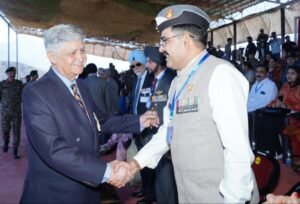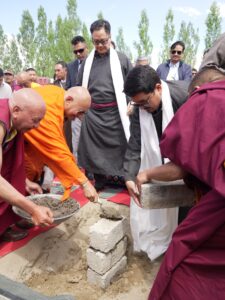Last Updated on December 17, 2020 at 2:51 pm
Neha Upadhyay started studying about organic sustainable agriculture and farmers’ plight in India in 2015. She enrolled in the Earth Democracy course at Navdanya Beeja Vidyapith, which is also known as the Earth University in Uttarakhand. In 2014, she spent Rs 40,000 from her personal savings to conduct workshops for raising awareness about the plight of farmers, the importance of organic farming and eating local food in villages of states like Haryana, Maharashtra, and areas bordering Delhi. This inspired her to create her own social enterprise, GUNA Organics.

At one such workshop in a Ladakh village, she found that the region was badly hit by floods in 2010 and was trying to revive by following organic and sustainable livelihoods. After the workshop, Neha decided that this village would be the first eco-model village of Ladakh today. She says that the farmers were having difficulties in making sales because merchants from Delhi refused to market their products, as they didn’t want to take orders from faraway places. They doubted delivery from Ladakh to Delhi will be timely and the farmers were disheartened.
To overcome this problem, Neha started forming self-help groups and started teaching them compost making. She also introduced new product lines of barley, apricot nut and oil, other seeds and dry fruits. She was awarded a fund of $50,000 from UNDP’s Global Environment Facility’s Small Grant Programme. She built a website for GUNA and started to market their products.
She works with farmers from many villages in Ladakh. They sell both through B2B and B2C models. These farmers supply to big chains like Hyatt. Their products cost between Rs 400 and Rs 600, while the market price for similar products like apricot oil is generally around Rs 1,100. Neha also focused on hygiene and post-harvest management.
She was also honoured with the Social Impact Award in India 2017 from the British Council for her contribution to society.
Neha has pursued a master’s in Human Resources Management and Organisational Analysis at King’s College in London. She has also worked as a research and development officer at Mossbourne Community Academy. She spent her early part of career analysing behaviours and eating habits of students with juvenile diabetes.



